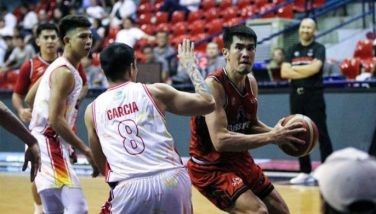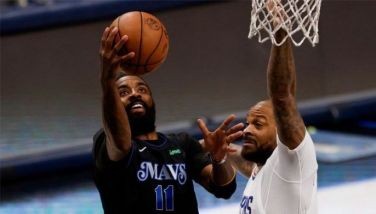Head over heart, data over drama
Two recent debacles demonstrate a common trait among us Filipinos, a trait that is also prevalent among our leaders. We often approach controversial matters emotionally. People air their frustrations and disappointments, but few are willing to take the blame, admit their faults, or critically analyze the situation and do the math.
I’m referring to Gilas Pilipinas in the FIBA World Cup 2023, which has yet to win a single game after four games with only one game remaining, and the Pasigarbo sa Sugbo 2023 incident last Sunday, which was marred by technical glitches.
At the FIBA World Cup, we have shown our passion toward basketball as well as our pride in our representation in this world-class tournament. We’ve had triumphs before in this sport, and we are not exactly far behind when it comes to performance among the world’s best, because I think we can say that we always had a fighting chance and were not outclassed.
But having failed to win any of our four games so far, with only one remaining against China, this debacle has stirred collective disappointment. Gilas coach Chot Reyes has borne the brunt of the blame, as evidenced by the boos he receives at the start of each game in this tournament.
Reyes, in defense of himself, has also become emotional, though he expressed taking full responsibility for the failure. He apologized to the Samahang Basketbol ng Pilipinas, saying he himself is the only one to blame. But I agree with pundits who say that Reyes is only partly to blame. As one online columnist put it: “It’s not within Reyes' control that international basketball has developed by leaps and bounds.”
But an emotional response often blurs the line between defensive reaction and constructive criticism or self-criticism. It can sometimes just be a ploy to deflect accountability, rather than critically analyzing the reasons for the loss. Who is doing the math? Why did we lose to four teams in a row in FIBA? And what can we do about it if we want to pursue this dream of beating world-class teams in basketball?
Similarly, with the Pasigarbo sa Sugbo incident, the immediate reactions to the technical glitches that forced several contingents to repeat their performance, were driven by frustration rather than objective analysis. To objectively analyze a situation, a level of emotional detachment can be helpful. It's a challenge that many, including our leaders in various fields and the general public, often have difficulty adopting.
This does not mean that we should no longer express our frustration. But given that as a natural human reaction, who else is looking beyond to dissect the problem? In the Gilas Pilipinas' performance, in particular, who is looking into and willing to listen to a detailed examination of training, strategies, and team dynamics?
In the Pasigarbo sa Sugbo incident, beyond the widespread dismay felt by all those concerned, one must ask: What caused the technical glitches? From the ordinary staff to the event organizers and their higher-ups, what missteps were made that need to be corrected to prevent a recurrence? Who was overseeing the technical rehearsals? Considering that there are established templates for mounting such grand events, which essential steps were missed, and why?
Sadly, instead of “garbo” (pride), the debacle that happened at Pasigarbo sa Sugbo and the cringe-worthy reactions to it made us Cebuanos feel ashamed.
Emotions can be the initial response, but it should not end there. For the Philippine sports and cultural scenes to flourish, doing the math, in literal and figurative terms, can guide decision-making, training, and event management, making future projects more successful.
Like most other Asians, we hate losing face and value our sense of pride greatly. However, while emotions are an integral part of our Filipino identity, we cannot hope to continue challenging other countries in global competition without giving equal importance to accountability and analysis.
By the way, I must mention why many Filipinos excel abroad under foreign trainers or within excellent leadership and merit-based systems, yet often struggle or find their potentials untapped at home. Take the international boxing icon Manny Pacquiao as an example. Without Freddie Roach's meticulous guidance, which focused on methodically and objectively addressing Pacquiao's weaknesses, would Manny be the legend he is today? I'd argue probably not, as his skills development and training might still be influenced by our local predisposition towards nepotism, patronage, and drama.
- Latest






















